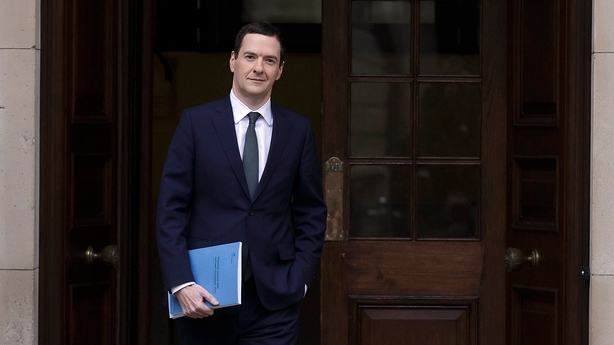The British finance minister has said that leaving the European Union would cost Britons thousands of pounds a year and sap funding for public services because it would do permanent damage to the country's economy.
George Osborne pointed to Treasury figures which said breaking away could cost each household £4,300 a year by 2030.
Three days after official campaigning began for the EU membership referendum on June 23, Osborne said all alternatives to staying in the union would leave Britain's economy smaller than if it stayed in the world's biggest trading bloc.
Leading institutions and economists have warned about the short-term economic harm a so-called Brexit could cause but have been more reticent about the longer-term effect
Anti-EU campaigners dismissed the Treasury's estimates as worthless, but Osborne sought to hammer home his message that a Brexit would be felt by ordinary Britons.
"Britain would be permanently poorer if it left the European Union. Under any alternative, we'd trade less, do less business and receive less investment," Osborne said.
"And the price would be paid by British families. Wages would be lower and prices would be higher," he said.
He made his comments in a speech at a research centre specialising in composites for the aerospace industry which has deep ties with other EU countries.
Most opinion polls show the rival campaigns running neck and neck although one published today showed the "In" campaign had kept a seven percentage-point lead.
Another poll last week showed just how sensitive voters are to what a Brexit meant for their own finances.
Pollster YouGov said respondents who were evenly split shifted to 45-36% in favour of staying the EU if they were told that the cost of a Brexit for them would be £100 a year.
Brexit supporters accuse the government of running a scare campaign. They say a post-EU Britain would flourish as it pursued its own trade deals and dropped rules and regulations.

Osborne tried to dismantle those arguments today. He said that even the least disruptive Brexit option for Britain studied by his ministry - a deal with the EU similar to Norway's access to the bloc's single market - would mean the economy would be nearly 4% smaller by 2030 than if it stayed in.
One of the leading "Out" campaigners, London Mayor Boris Johnson, has sketched out a different future for Britain, citing the trade deal reached by Canada with the bloc which could free Britain from contributing to the EU budget and end its obligation to keep its borders open to all EU workers.
Osborne said that kind of deal would not cover Britain's powerful services industry and would leave the economy 6% smaller by 2030, or £4,300 per household.
That would cut government tax revenues by £36 billion a year, or the same as its security and justice budgets combined, he said.
Osborne's calculation of economic damage was based on the value of the estimated growth shortfall divided among Britain's roughly 27 million households.
Several international bodies, including the International Monetary Fund, have warned of the risks of a Brexit.
Bank of England Governor Mark Carney, who has said Britain's economy has benefitted from being in the EU, is due to speak in parliament tomorrow.

